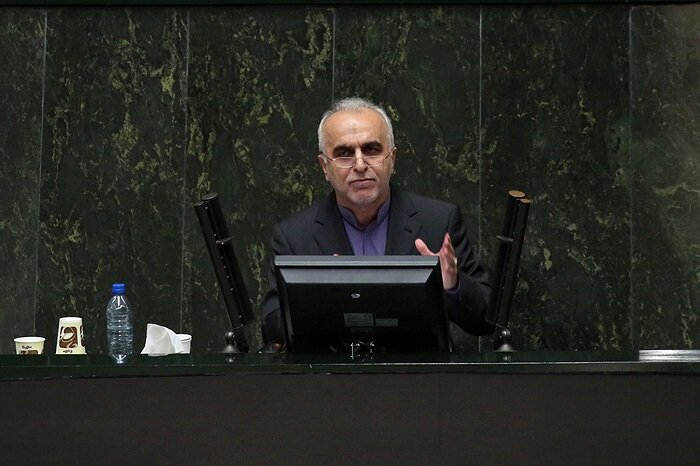

TEHRAN- Iranian Finance and Economic Affairs Ministry announced that over 1.27 quadrillion rials (about $30.2 billion) worth of government properties and assets have been transferred to the private sector during the past Iranian calendar year (ended on March 20), IRIB reported.
Speaking in a parliament open session on Tuesday, Farhad Dejpasand said during the previous year 350 trillion rials (about $8.33 billion) of the revenues earned from the privatization program was directly injected into the treasury of which 320 trillion rials (about $7.6 billion) was earned form offering the state-owned companies’ shares through exchange-traded funds (ETFs).
Dejpasand has previously announced that offering the shares of state-owned companies, which are planned to be privatized, will be sped up.
He has also said that the government should amend its policies and methods of setting the prices and transferring the shares in the process of privatization.
In Iran, the implementation of the privatization plan aimed at more productivity, investment making, job creation, promotion of trade balance, more competition in the domestic economy, and reducing financial and management burden on the government has been under the spotlight over the past decade.
The law on the implementation of the general policies of Article 44 of Iran’s Constitution on privatizing state-owned companies was declared in 2006 in a bid to downsize the government and promote the private sector’s role in the national economy.
The government envisioned a large privatization program in the Fifth Five-Year National Development Plan (2010-2015), aiming to privatize about 20 percent of the state-owned firms each year. Under the present interpretation of Article 44, some state-owned companies have been privatized to reduce their financial burden on the country’s budget and also increase their productivity.
Although downsizing the government has been on the agenda for many years, but a number of factors have been hindering the privatization trend in the country, among them, the government’s high interference in the management of the transferred companies is a challenging one.
EF/MA
Related posts:
Views: 0
 RSS Feed
RSS Feed

















 April 20th, 2021
April 20th, 2021  Awake Goy
Awake Goy  Posted in
Posted in  Tags:
Tags: 
















